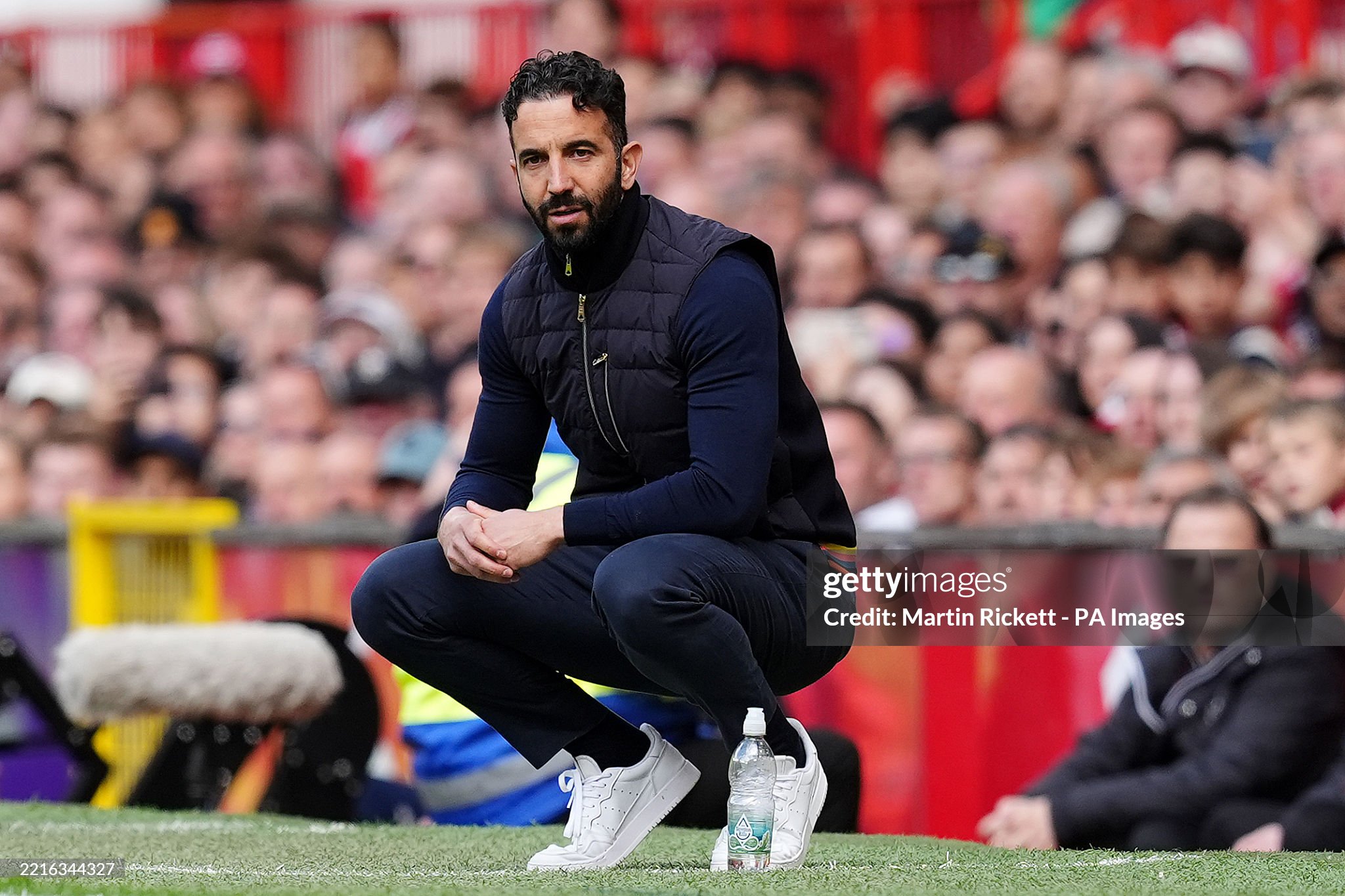Manchester United are entering one of the most delicate summers in the club’s modern history. After a calamitous campaign that ended with a 15th-place finish in the Premier League and a crushing defeat in the Europa League final, the mood around Old Trafford is one of disillusionment and uncertainty.
This was the club’s worst top-flight finish since 1974 the year United were relegated. The consequences of missing out on Champions League football for next season are already beginning to show, particularly in the way the club must approach the summer transfer market.
At the heart of the club’s reset is newly-appointed manager Rúben Amorim, who joined from Sporting CP with the promise of rebuilding Manchester United through long-term planning and youth integration. But speaking to the press during United’s training camp in Kuala Lumpur, Amorim delivered a sobering message to the fans one that reflects the scale of the challenges ahead.
“We’ve prepared two plans: one with Champions League football and one without,” Amorim explained. “Without European competitions, we don’t need a large squad, so we can balance it better. Of course, we have a plan to bring in new players. But we simply can’t make many changes because we are constrained by Financial Fair Play regulations.”
Those constraints are significant. Years of high spending and underperformance have placed United in a difficult position with UEFA’s financial oversight mechanisms. According to insiders, the club has little flexibility to engage in the kind of large-scale recruitment fans had been hoping for following such a disastrous season. Even with Champions League revenue, Amorim confirmed, there would have been limits. “We’re not allowed to do much this summer even if we had qualified,” he said. “It’s going to be difficult, but I do feel like I’m seeing improvement in the team. We want to strengthen the squad a bit and improve the academy that is our future, after all.”
The emphasis on youth development is not new for Amorim, whose work at Sporting was praised for nurturing players like Pedro Gonçalves, Gonçalo Inácio, and Ugarte. At Manchester United, he sees a similar need to restructure the long-term vision moving away from short-term solutions and big-name signings, and toward sustainable growth and tactical cohesion. Still, for a club of United’s stature, that message may be a tough sell.
Behind the scenes, there are signs of activity, even if major moves seem unlikely. According to reports in England, the club has shortlisted two young forwards Matheus Cunha from Wolverhampton Wanderers and Liam Delap from Ipswich Town as potential summer arrivals. Cunha is a proven Premier League talent with versatility across the front line, while Delap, son of former Stoke City player Rory Delap, has emerged as one of the most promising young English strikers in the Championship.
However, the most dramatic changes this summer may come through departures. The Manchester Evening News has reported that the club is open to selling several high-profile players in order to free up funds and make room for a new core. Among those reportedly on the exit list are Marcus Rashford, who endured a turbulent and inconsistent season; Antony, whose performances failed to justify his hefty transfer fee; Jadon Sancho, still exiled from the squad after a fallout with the previous manager; and even Alejandro Garnacho, whose name appearing in such speculation has shocked many fans.
Whether these departures actually materialize remains to be seen. United will likely struggle to find buyers willing to match the wages or transfer fees required, especially in a European market that has become more cautious post-COVID and under the shadow of Financial Fair Play. Meanwhile, Amorim’s ability to navigate a squad rebuild with limited resources will be one of the early tests of his tenure.
There is no question that the expectations remain sky-high. United fans have endured a decade of false dawns and expensive experiments, with only intermittent success. The promise of a clear project under Amorim one based on structure, identity, and the development of a new generation offers hope, but also demands patience. And patience is something that has historically run short at Old Trafford.
As pre-season progresses, all eyes will be on how Amorim handles both the market and the messaging. His candid approach has already set a tone of realism, but for a global brand like Manchester United, realism must eventually translate into results. Whether he will be given the time and backing to implement his vision remains to be seen, but for now, the message is clear: United's rebuild will be gradual, strategic, and by necessity modest.


